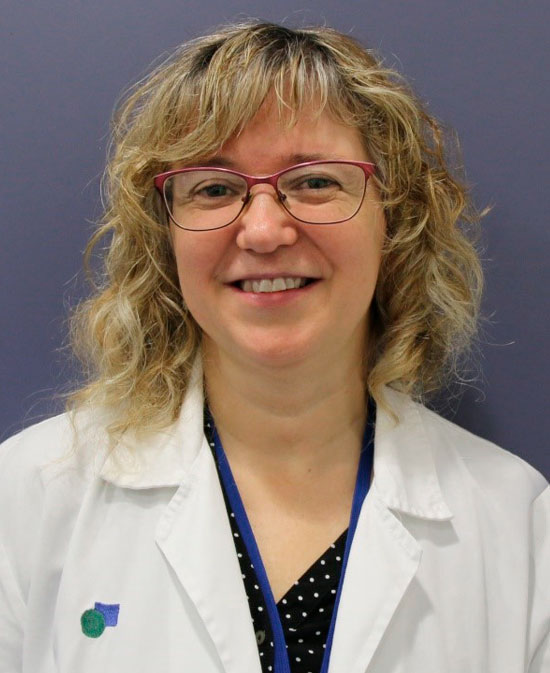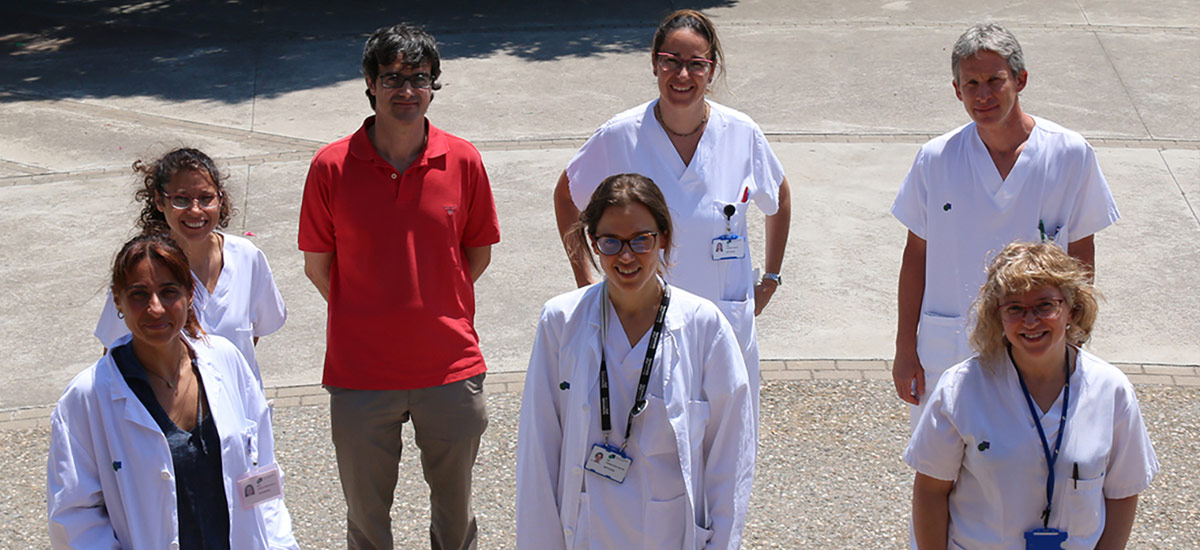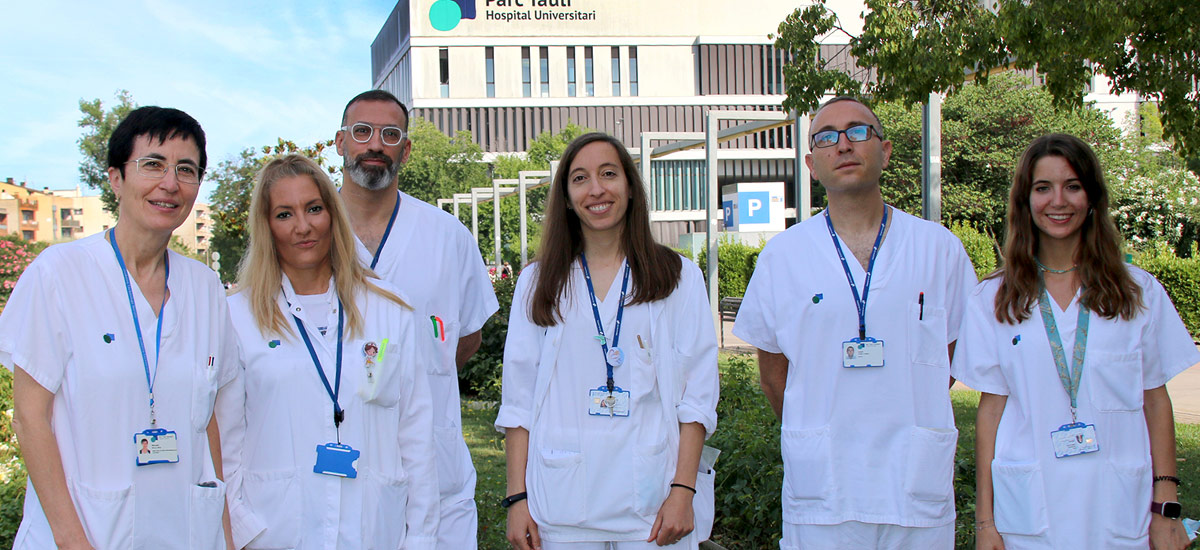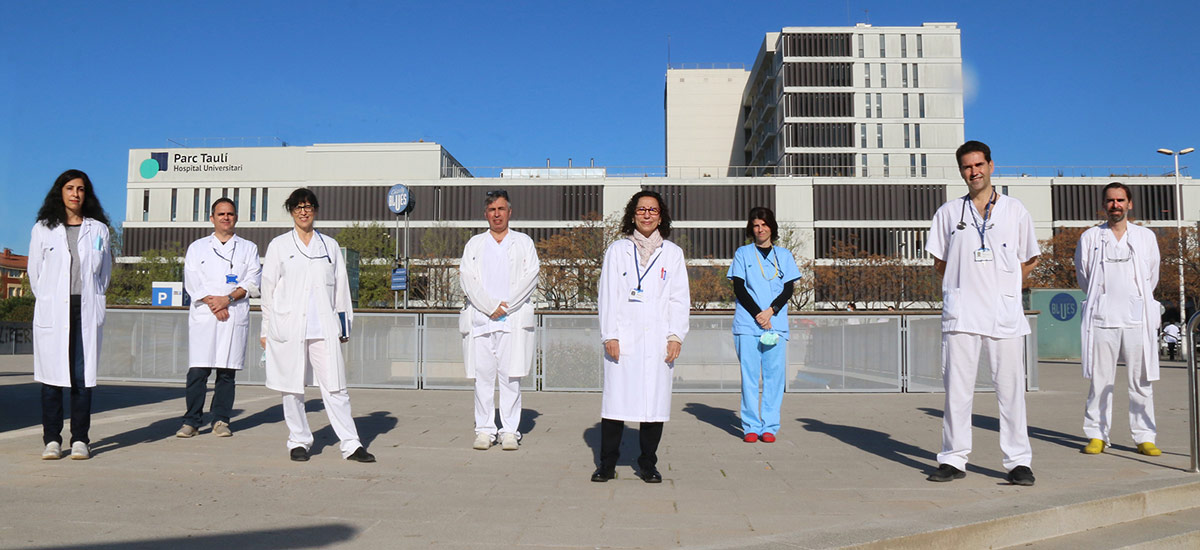Metabolism and Digestive
- About the area
- Groups
This research area includes 4 consolidated and multidisciplinary groups that they have in common research in metabolic or digestive system diseases. Two of the groups are dedicated to the diabetes in two distinct aspects, one in the study of cardiovascular risk and the other in the development of new technology for the treatment of type 1 diabetes and for telematic monitoring of gestational diabetes. Another of the groups is dedicated toobesity, especially in relation to the effect of bariatric surgery on different aspects and the study of the pathophysiological mechanisms of hyperphagia in genetic obesity, such as Prader-Willi syndrome. Finally, the fourth group is dedicated to the study of various pathologies of the digestive system, such as inflammatory bowel disease, Helicobacter pylori pathology or liver disease.
The relevance of this area lies in the fact that all groups are reference leaders in the pathology that investigate and participate in or lead national and international projects that involve a great diversity of disciplines. They stand out for their transversality and for their interaction and collaboration between them and with groups from other areas.
Strategic lines of the area
- Obesity, Prader-Willi Syndrome and hyperphagia.
- Diabetes: cardiovascular risk and new technologies.
- Inflammatory bowel disease.
- Application of new digital and biotechnological technologies in the diagnosis and treatment of metabolic and digestive diseases.


Group A4G1 - Obesity and Prader Willi syndrome
Accreditation level: Consolidated group
Our research group carries out a translational research that aims to study on the one hand different aspects from more basic in the laboratory to more clinical in daily management, related to excess weight, metabolic syndrome, the state inflammatory and the effect that bariatric surgery may have on them. On the other hand, our group is a leader at the national level and of international reference in the study of a type of genetic obesity, Prader-Willi syndrome (SPW), and its physiological mechanisms of hunger and satiety. either at the peripheral level (gastrointestinal peptides) or at the central level by functional magnetic resonance imaging (brain connectivity in areas for ingestion motivation or alternative areas to these) in order to discover new therapeutic targets for the specific approach to hyperphagia exaggerated and eating behavior that both affects these patients. It also studies the effect of growth hormone in adults with SPW on central hypotonia (using functional magnetic resonance imaging) and its relationship to body composition and muscle strength.
The group is made up of clinical researchers related to obesity and nutrition (endocrinologists, surgeons, nutritionists, neuropsychologists, psychiatrists), but also includes external collaborators dedicated exclusively to research (neuroradiologists, neuropsychologists specializing in data management). of neuroimaging, etc.).
Lines of research
- Obesity and bariatric surgery: psychopathology of morbid obesity and effects of bariatric surgery on inflammation, metabolomics and microbiome.
- Prader Willi and growth hormone: Study of hyperphagia, appetite and satiety gastrointestinal peptides, study of brain connectivity.
- Study of the effect of deep proprioceptive stimulation on Prader Willi Syndrome.
Composition of the group
Assumpta Caixàs Pedragós (Group leader) | ORCID
Doctoral research staff
- Casamitjana Espuña, Laia
- Coronas Borri, Ramon
- Giménez Palop, Olga
- Luna Aufroy, Alexis
- Orús Puigvert, Josefina
- Rebasa Cladera, Pere
Predoctoral
- Leon Mengibar, José
- Luchtenberg, Florence
- Couple Franganillo, Rocío
Non-doctoral research staff
- Couto Rosende, Yolanda
- Hernández Lázaro, Alba
Group A4G2 - Diabetes-cardiovascular risk
Accreditation level: Group in consolidation phase
The cardiovascular risk diabetes group is multidisciplinary, incorporates specialists from other hospitals and its leader is part of CIBERDEM. With more than 10 years of experience currently focusing on better predicting coronary events in patients with type 1 diabetes, the group has developed a mathematical model with a high ability to predict the presence of silent myocardial ischemia in these patients. This model will be validated and enhanced with the addition of new biomarkers over the next four years.
In the future, it is planned to evaluate the changes in arterial stiffness of patients with type 1 diabetes and its association with fatty liver in order to better predict the cardiovascular risk of type 1 patients.
Lines of research
- The intestinal wall as a target organ: a step forward in precision medicine.
- The role of insulin resistance in cardiovascular risk in type 1 diabetes.
Composition of the group
José Miguel González Clemente (Group leader) | ORCID
Doctoral research staff
- Cano Palomares, Albert
Non-doctoral research staff
- Puntí Sala, Jordi
- Rodríguez Revuelto, Ato Antonio

Group A4G3 - Technology applied to diabetes
Accreditation level: Group in consolidation phase
Our group is a pioneer in technology applied to diabetes in Catalonia and our research focuses on two clinical scenarios: artificial pancreas to improve diabetes treatment and smart telemedicine applied to diabetes management. In addition, we take into account in all our activities, both healthcare, teaching and research, the need to be aligned with the needs of society and for this reason we consider the participation of our own patients, from participation in the design of new smart tools for diabetes management until evaluation and improvement proposals.
The group consists of clinical research staff (endocrinology), computer engineering and research support staff (two master research nurses in clinical trial monitoring).
Lines of research
- Personalization of artificial pancreas treatment based on artificial intelligence.
- Applications of smart telemedicine for improving diabetes monitoring.
- Tissue response to glucose sensors.
- Study of predictive factors in the development of coronary events in patients with type 1 diabetes mellitus.
Composition of the group
Mercedes Rigla Cross (Group leader) | ORCID
Doctoral research staff
- Capel Flores, Ismael
PhD
- Albert Fabregas, Lara
- Andújar went up, David
Non-doctoral research staff
- Aguilar Gázquez, Montserrat
- Mendez Lopez, Ana
- Yuste Gimenez, Cristina

Group A4G4 - Inflammatory bowel, liver and Helicobacter pylori
Accreditation level: Consolidated group
Our research group is a group established by the AGAUR (SGR2009-01500) and belongs to the CIBER of liver and digestive diseases since 2006. Since its formation, the multidisciplinary group has been composed of digestologists and hepatologists, endoscopists, nursing biologists. The group has received in recent years multiple competitive scholarships, including two from the TV3 Marathon and funding from the FIS on an ongoing basis for the last 10 years.
On the one hand, our group focuses on the clinical research of the diagnosis and treatment of H. pylori infection, inflammatory bowel disease and chronic liver disease. On the other hand, we also perform basic research by studying markers of microRNAs and metabolomics for intestinal diseases, and investigating the virulence factors of H. pylori.
We currently have over 20 research projects, most of them in collaboration with national and international centers, and transfer activities with international companies.
Lines of research
- Helicobacter pylori and associated diseases. Diagnosis, treatment and cancer.
- Inflammatory bowel disease.
- Liver diseases.
Composition of the group
Xavier Calvet Calvo (Group leader) | ORCID
Doctoral research staff
- Brunet Mas, Eduard
- Casas Rodrigo, Meritxell
- Ferrusquia Acosta, Jose Alberto
- Junquera Florez, Felix
- Lario Garcia, Sergio
- Martinez Bauer, Eva
- Miquel Planas, Mireia
- Ramírez Lázaro, M. José
- Sanchez Delgado, Jordi
- Solé Martí, Cristina
- Vergara Gómez, Mercè
- Villoria Ferrer, Albert
Predoctoral
- Llovet Soto, Laura
- Mashlab Mashlab, Salvador
- Melcarne, Luigi
Non-Doctoral Researchers
- García Iglesias, Pilar
- Hernández Sánchez-Carnerero, Leticia
- Lira Aguilar, Alba
- Montserrat Torres, Antònia
Support professionals
- Alforcea Alcaraz, Sheila
- Rodríguez Cerrillo, Sílvia
- Sánchez Rubio, Alicia





